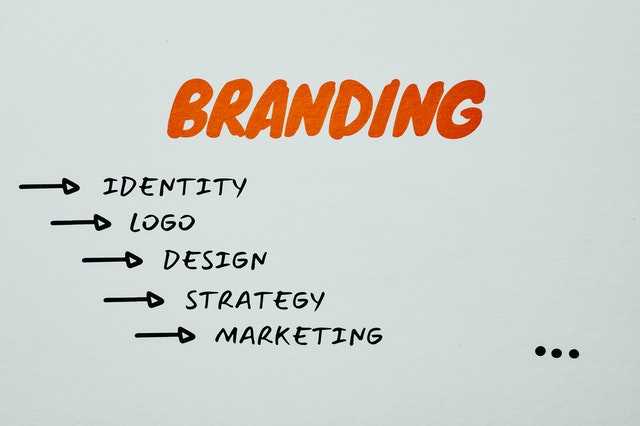What Is Branding Marketing?

In a nutshell, branding is who you are, and marketing is the way you spread the word about who you are.
What Exactly Is Branding?
Your strategy is branding, and your tactical goals are marketing. You must ask yourself the following questions to determine what your brand is.
.jpg)
1. Your brand is a promise
Your brand is a promise you make to your customers and also to yourself.
The first, and probably most important, reason for branding is that it makes a promise to your customers in a very concise manner.
When customers work with you, a good brand will always tell them what they can expect—and hold you accountable for.
That promise also has the added benefit of keeping you honest with yourself.
If you build a brand around being innovative but then deliver a me-too experience, the marketplace will tell you loud and clear that you are not living up to your promise through lost sales and declining revenue.
The inverse will be true as well. You will reap the benefits if you deliver on that brand experience.
.jpg)
2. Emotions
We are emotional, instinctive creatures, according to modern behavioural science. Emotions are at the heart of a successful brand strategy.
We'd all like to be logical. We make a list of advantages and disadvantages. We ask for referrals or speak with coworkers who may have used a service previously, but at the end of the day, your decision will be based on how you feel.
An emotion you're experiencing as a result of your decision. The good news is that it's not as difficult as it appears.
For the entire history of commerce, commodity consumer goods have had to figure out a way to do this. Nike is one of the best in the world at what they do.
Competitors who talk about features and benefits will always lose to a brand built around triggering your customers' emotions.
.jpg)
3. Be the cynosure of day-to-day business
There is a "feeling" that comes over you when you interact with a well-branded company. Everything falls into place.
Everything from the packaging to the checkout process will be scrutinized for consumer products. It also includes in-store signage and online presence.
For B2B customers, it'll be the sales cycle, the assurance that what you're buying is exactly what you're getting, that this is a company that has your back, is working with you to achieve mutual success, and will not let you down.
Anything less, any experience based on swiping a card or signing a contract and then never hearing from that company again except to receive the service or product. You might as well be a vending machine.
There's no way for your service or product to vanish when you have a memorable brand and a story that's easy to tell and retell to others. Instead, you'll be known as "the guy." When someone asks how they solved X, Y, or Z problem, your current customers will say, "I have a guy who..." What's more, guess what? You're "the man."
.jpg)
4. Advertising and marketing will be guided by a well-defined brand
Let's move on to how a strong brand can make your advertising more efficient since we've already discussed it.
It's only natural that your marketing and advertising efforts will tighten up dramatically once you know what kind of company you are or aren't going to be, have that story in place, and have targeted what emotions your customers should feel when working with you.
A communications audit is one of the first steps in the branding process.
It's impossible to know what to say to customers or how to say it without a strong, clearly defined brand.
As a result, the shotgun approach is used. Put everything out there and see what sticks.
Marketing, no matter how grassroots your company tries to be, will always require an investment if done well and strategically.
Money is the least valuable resource that is lost.
.png)
5. Brand identity draws attention to itself and forces it to focus
When you tell someone who you are, you're also telling them who you're not. That is often much more important when it comes to positioning your company to win.
Your purpose statement becomes your brand identity. You've made your positioning statement. Your guiding star.
It becomes something you can rely on whenever a "great new opportunity" presents itself.
Is it consistent with who you are and what you tell your customers to expect from you? Anything that doesn't match should be safely ignored and discarded. It makes no difference no matter how good it sounds. If you can't stay on track, it's not so great.
Questions about who you are as a company, and more importantly, who you are as a brand, that goes beyond industry generalizations and services or products offered.
Author Bio
The Editorial staff includes content researchers from various areas of knowledge. They add a plethora of expertise to the Hubslides Editorial team. They constantly and frequently oversee, produce and evaluate contents that are most ideal to aid impacting knowledge to readers.
Article Comments
No Comments!
At present there are zero comments on this article.
Why not be the first to make a comment?
Similar Articles
Sponsor
Search Articles
Experts Column
Latest Articles
Featured Articles
Most Popular Articles












